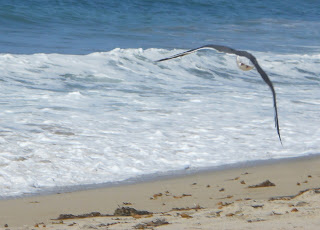Yauh Mouh Yauh Yihk: adult children no longer listen to their parents (lit. have feathers and wings)
Baahk Geui Yih (A.D. 772-846), a famous poet of the Tang dynasty, heard about a son who abandoned his parents. Saddened, he wrote the following poem entitled Swallow:
A pair of swallows built a nest under the eaves,
And the mother swallow bore four babies.
The babies grew bigger day by day,
They always demanded food as if they never got enough to eat.
Although the two swallows were already very tired, they still tried their best to look for food for fear that
the babies were still hungry.
After a month, the babies grew bigger and bigger but the mother was getting thinner and thinner.
She also taught them how to sing and fly.
Once they got all their wings and feathers and were able to fly, they just flew away in the wind and never
came back.
The new generation has moved on and left me behind. I grew up knowing this solid writing rule: place two spaces after a period. I recently had to edit a manuscript before submission, removing double spaces and replacing them with single ones. Since then, I've examined all my incoming emails and found a combination of people who use either one or two spaces when writing.
To find a final answer, I conducted an informal survey via Facebook on my friends' writing habits. I know 7 one-spacers, 11 two-spacers, and 3 on-the-fence.
After some research, though, it looks like the experts agree that one space is the best way. Two spaces appear to be a throwback from the typewriter days. With the advancement of technology, multiple spaces are no longer needed. More in-depth explanations can be found on these articles from Slate and Writer's Digest.
Now I'm retraining my fingers so that I can enter the modern world of single spacers. A new way of thinking just in time for the new year. Happy holidays to all!
Baahk Geui Yih (A.D. 772-846), a famous poet of the Tang dynasty, heard about a son who abandoned his parents. Saddened, he wrote the following poem entitled Swallow:
A pair of swallows built a nest under the eaves,
And the mother swallow bore four babies.
The babies grew bigger day by day,
They always demanded food as if they never got enough to eat.
Although the two swallows were already very tired, they still tried their best to look for food for fear that
the babies were still hungry.
After a month, the babies grew bigger and bigger but the mother was getting thinner and thinner.
She also taught them how to sing and fly.
Once they got all their wings and feathers and were able to fly, they just flew away in the wind and never
came back.
The new generation has moved on and left me behind. I grew up knowing this solid writing rule: place two spaces after a period. I recently had to edit a manuscript before submission, removing double spaces and replacing them with single ones. Since then, I've examined all my incoming emails and found a combination of people who use either one or two spaces when writing.
To find a final answer, I conducted an informal survey via Facebook on my friends' writing habits. I know 7 one-spacers, 11 two-spacers, and 3 on-the-fence.
After some research, though, it looks like the experts agree that one space is the best way. Two spaces appear to be a throwback from the typewriter days. With the advancement of technology, multiple spaces are no longer needed. More in-depth explanations can be found on these articles from Slate and Writer's Digest.
Now I'm retraining my fingers so that I can enter the modern world of single spacers. A new way of thinking just in time for the new year. Happy holidays to all!



Comments (5)
I went. Through the retraining about five years ago. I'm happy to report it was a lot easier than I anticipated. :)
No idea why my phone split that first sentence. Using it is harder than using a real keyboard. Sigh and woe...
Hi Andy,
Thanks for stopping by! Good to know that the retraining went fast for you.
I still haven't used a phone to do web stuff yet. That might be another leap to take someday...
I like the Swallow Poem. Now that I have kids, I understand how my mother felt when I "left the nest." Anyway, do you see this? I can't help but insert a double space after my periods. This may very well be a hint as to the age of the writer (those born in the typewriter days). I have yet to train myself now that I've read your post and the Writer's Digest article!
Thanks, Romelle. The poem is pretty authentic in its sadness. I suppose that's why there's even a term coined for the empty nest syndrome. As for typing, there's always time to retrain--or as my husband suggests, to do "find and replace" to make double spaces into single ones.